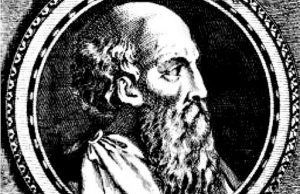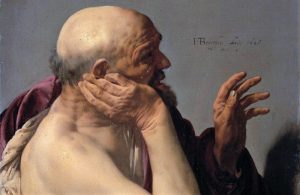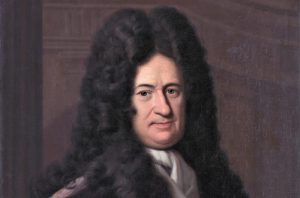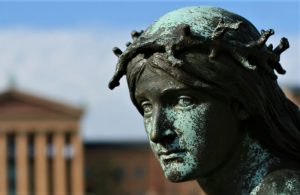Democritus
Democritus was a great Greek philosopher, as well as Plato and Aristotle during the time. Democritus created the atomist doctrine, which explained how the universe was made up of a large number of countless corpuscles or atoms of identical composition, which were indivisible in nature, since the word atom in Greek means inseparable. He also thought that atoms were eternal and could not be destroyed, that they were in constant movement in the infinite void and that the only difference between them was related to their dimensions, their form and their position.
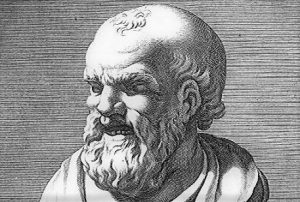
- Occupation: Philosopher
- Why is he famous: For his atomic theory
Who was Democritus?
Democritus was a great Greek philosopher and scientist, who was responsible for creating the atomist doctrine which explained the way in which the universe was formed by thousands of atoms of identical and indivisible composition, eternal and homogeneous, responsible for giving rise to objects.
Biography of Democritus
Democritus was born in a place called Abdera, in the region of Thrace, around 460 B.C., son of a noble family with great wealth. His father collaborated with Xerxes, king of the Persians, to train their armies. Thanks to his family’s reputation, Democritus had the opportunity to work and surround himself with many connoisseurs, philosophers and scientists, who were in charge of introducing them to subjects such as astronomy and theology. He is credited with many trips to Egypt and India, where he acquired knowledge of theology, astrology and geometry.
Thought of Democritus
For Democritus, everything that existed in nature was the result of a combination of atoms and emptiness: he affirmed that atoms move in a natural way and that, during their movement, collisions occur with each other and that they combine when their forms and other characteristics allow it. He thought that, within the universe, collisions between atoms were responsible for creating a type of whirlwind and that these enormous whirlwinds generated the different worlds that existed in the universe. He assured that all living beings develop from the primitive slime that resulted from the effects of heat, that fire was closely related to life and that the atoms of fire and those of the soul are of a very similar nature, with the only difference being that they are smaller and rounder than the others. His ethics were based on the inner balance achieved through the control of passions by means of knowledge and prudence.
Theory of Democritus
Democritus was the person who managed to develop the atomic theory that had been promulgated by Leucippus some time ago. This theory said that there could not be an “ad infinitum” division of things because of the infinite nature of atoms. He assured that it was practically impossible to determine the origin of time, as well as the eternity of nature, spatial emptiness and movement. This atomic theory has been the world’s greatest revolution in antiquity because it was the breakthrough for today’s quantum physics. According to his theory atoms had always existed under an inherent motion. These atoms moved in a straight line, but due to some mechanical causes they left the normal trajectory producing collisions between them, the atoms that were deviated provoked an aggregation of the same ones giving form this way to the objects that surrounded us.
Atomic model
His atomic model seeks to explain the structure and representation of atoms and their behavior through logical reasoning and philosophical principles, telling us that atoms were eternal, indivisible, homogeneous, invisible, differentiated by their shape and size and that the properties that matter had could change according to the type of grouping of things. His model said that objects and living beings were formed by atomic whirlpools.
Contributions of Democritus
- He founded the philosophical school of atomism in which it was taught that atoms were tiny particles that could vary in size and shape and that when they clashed together, they could give rise to matter, which means that everything we see is made up of atoms.
- He promulgated the Perception Theory, which was related to atoms, saying that images were layers of atoms which expanded or shrank, and that the smaller ones were capable of entering the human eye.
- He spoke of bastard knowledge and legitimate The bastard was the inefficient knowledge acquired through sensory perception, while the legitimate was obtained through the processing of the bastard knowledge through inductive reasoning.
- Some data and historians refer that Democritus was the one who created the theory of the historical development of communities.
- He proposed the existence of a type of supreme good that he called joy, which was related to the ability to enjoy life.
Arche
For Democritus, the arche were the atoms, which were his essence, because for him everything had its own construction starting from them. For him, they were the fundamental pieces of everything that surrounded us, whether alive or dead.
Phrases
Some of his most famous phrases are:
- All is lost when the bad ones serve as an example and the good ones as a mockery.
- Even if you’re alone, you shouldn’t say or do anything wrong. Learn to be more ashamed before yourself than before others.
- The one who postpones everything will leave nothing finished or perfect.
- The whole earth is available to the wise, for the homeland of a high soul is the universe.
- Life is a transit; the world is a spectacle hall; man enters it, looks and leaves.
- Nature suffices itself; for this reason it conquers with the least and with the sure, the excess of hope.
Works
Diogenes Laercio attributes to Democritus a total of 73 works, which were based on Mathematics, Physics, Grammar and Ethics. However, only a few fragments have been found. The most important was the atomic theory of matter. In addition, he is given the following theorems:
- “The volume of a cone is equal to one third of the volume of a cylinder of equal base and height.
- “The volume of a pyramid is one third of the volume of the prism of equal base and height.”
How to cite this article?
Briceño V., Gabriela. (2019). Democritus. Recovered on 3 January, 2025, de Euston96: https://www.euston96.com/en/democritus/



